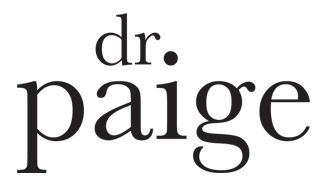Can Accountability Thrive Amidst Bureaucracy?
In a recent blog I shared the challenge a large insurance firm client of mine was facing in resetting accountability across their organisation. Normalising personal ownership and collective responsibility across complex, bureaucratic structures was one area of focus for our work together, and as I explained to my clients, the critical thing to remember about this type of work is to ‘Think Global, Act Local’.
What does that mean?
Whilst the ‘what’ is ‘global’, i.e. a culture shift across the organisation towards accountability, the ‘how’ needs to be tailored to meet the ‘local’ context of each division, business unit and team. By understanding the local influencing factors, we’re more likely to be successful in co-creating and communicating clear, realistic accountability expectations and in building fruitful accountability relationships that mean we have a genuine partnership in making purposeful progress with the work we need to do
As we do this ‘localising’ work, there are four contextual considerations to be aware of:
- Individual team member readiness, performance, needs and preferences
- Team structure, dynamics, engagement and trust
- Work type, location, complexity and interdependency
- Organisation structure, business priorities and culture
In this blog, we’re going to take a closer look at the organisation considerations to be aware of – specifically how a bureaucratic context impacts resetting accountability.
Accountability and Bureaucracy – Ne’er the Twain Shall Meet?
Despite research that suggests the many benefits of autonomous work environments and leadership styles to both wellbeing and performance, most workplaces are built on the bureaucratic principles of standardization, specialization, stratification, formalization, and routinization.
Developed from a desire to carry out complex tasks with optimal efficiency, bureaucracy prioritises productivity over creativity, regulation over invention, and control over autonomy. In this kind of structure, power trickles down through layers of management, innovation is stifled, and decision rights are largely determined by your position on the many tiers of the organisation chart. Accountability is lost in the complexity of reporting lines and drag of bureaucracy seen in inertia, stagnation, and disempowerment.
The traditional models of organizing and leadership embedded in bureaucracy crush creativity and stifle the accountability organizations will need to survive and succeed the COVID and post-COVID world.
And this is a very real problem, because these ‘costs’ – both human and commercial – are not measured, remain largely hidden and therefore also unaddressed.
So what’s the alternative?
Whilst bureaucracy may be endemic, it is not inevitable. Gary Hamel is a long-time faculty member of the London Business School and recognized as one of the world’s most influential business thinkers. His book, Humanocracy suggests a human-centered alternative to bureaucracy.
When I interviewed Gary recently, he explained the seven principles that underpin Humanocracy in practice. These are the three that I see will most help support accountability:
Generate Ownership.
By ensuring people have autonomy in their work rather taking orders from others, they will feel more like they’re running their own business and the natural sense of ownership that comes from this will flow through to their mindset, attitudes and actions.
Introduce Markets.
As consumers, we understand the value of having choices about where and how we spend our money, but our organization’s internal services – such as HR and IT – often function like monopolies. Adopting a marketplace approach fosters more accountability through internal contracts between different activities, roles, and teams.
Build Community.
To be able to do our best work, we need others at work who know us, care, and will provide support when we’re struggling to meet expectations. When we’re able to talk about this we begin to build deep trust-based relationships, which is not only good for us as individuals, it’s good for the teams and organizations we work in.
Studies across the world indicate that bureaucracy is growing, not shrinking but that doesn’t happen without human intention and action. And it can be reversed through the same way.
I particularly loved Gary’s advice during our interview, which was to ‘be an activist, not a terrorist’.
You don’t want (or need) to blow the system or your career up by trying to change the whole enterprise at a corporate level. Start where you are.
As an activist, you can conduct experiments right where you are by trying something different and collecting some data. You can start to hack the existing management processes and systems by taking one of the principles and asking your team what you can do differently if, for example, you focused on building community, generating ownership or introducing a marketplace approach.
I’ve seen, heard and experienced the feelings of helplessness and hopelessness in wanting to create change amid bureaucracy. Know that you can start from where you are and, at the same time, have the bold aspiration that the system will change eventually.
Never underestimate the difference one person can make.
So how can you start where you are?
What can you do to be an activist and begin to loosen the bind of bureaucracy and reset accountability with your team?
Want more?
You can read more about how leaders can take a more effective approach to accountability in my e-book, The Accountability Reset. Just click here to download it. And if you haven’t read my book Becoming AntiFragile yet, why not ‘try before you buy’ with the free chapter download here.
Time to talk?
If you’d like to talk about how we can work together to help you, your leadership team or your organisation reduce fragility by Resetting Accountability and/or thriving through uncertainty by Becoming AntiFragile. Simply click here and I’ll be in touch.

Dr Paige Williams
International Speaker, Author, Mentor
Determined to help leaders move beyond just the need for resilience, Paige provides practical, evidence-based strategies for leaders to become antifragile, lead themselves and their teams to thrive and succeed in the Decade of Disruption.






